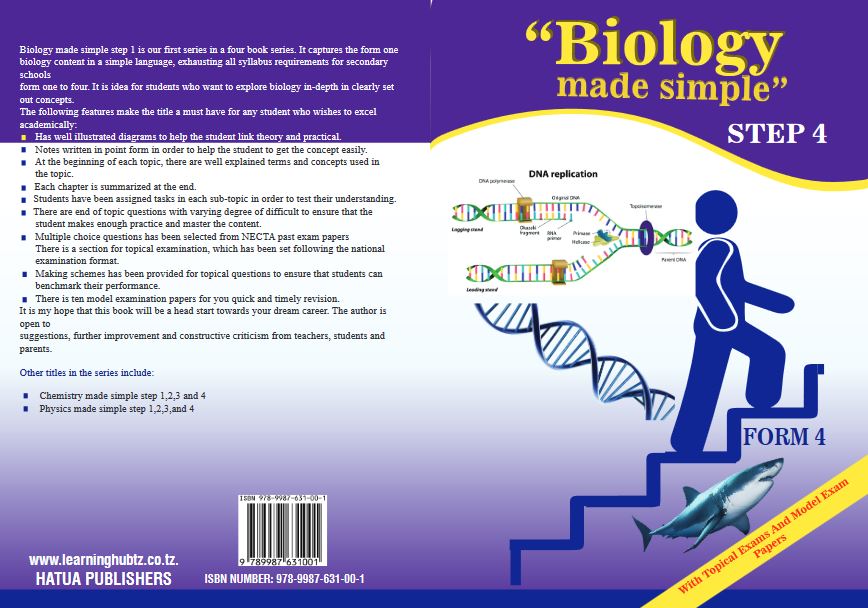CHAPTER 02 : TAKING CARE OF ONESELF
KEY TERMS
- Drug- This is anything that when taken in our body interferes with the body metabolism.
- Drug abuse- This is the act of using drug for the wrong purpose or intention.
- Poaching- This is the killing of wild animals in parks for leisure or for food.
- Risk behavior- This is a kind of behavior that endangers your life.
- Bullying- This is the act of mistreating a person who is young than you.
- Counseling – This is the giving of advice to a person regarding social or personal problems.
- Advice- This is an opinion or recommendation offered as a guide to action, conduct or any decision you want to make.
- Decision making- The act of choosing a course of action to take among given alternatives.
- Refugee- This is a person who has been forced to flee his or her own country because of persecution, civil war or violence.
- Equality- Is a state of being equal especially in status, rights or opportunities.
People with special needs- are people who require assistance or special care for some reasons.
Condemning activities that endanger community development.
We should always condemn acts that endanger the development of the
community. That means, we should be against activities that are illegal,
destructive, indecent and disorderly. Some of those activities are:
Intentionally inflicting bodily harm upon any person; taking any action for the purpose of inflicting physical harm upon any person; taking reckless action that results in physical harm to any person; taking any action that creates a substantial risk of physical harm to any person; or threatening by any means of transmission the use of force to physically harm or injure any person.
Disrupting peace, impeding classes, causing significant emotional harm, or endangering safety, health or life of any person at school or home through actions or words.
Drug or alcohol abuse. Being drunk puts your health at risk of participating in dangerous behaviours.
Cigarette smoking harms the smokers body, causes many diseases and leads to deaths.
Increased crime has effects on interpersonal relations between members of the community, because crime creates fear. So, trust decreases, neighbours stop talking, people start avoiding each other.
Illegal animal poaching, for example killing of elephants.
Illegal fishing by using bombs, poison or small hole nets.
Actions that influence other people to avoid dangerous Activities.
The most important thing to remember is that you are responsible for your own safety and the safety of others. Most safety practices are common sense. Unfortunately, they can be forgotten or overlooked unless you make safe practices a habit.
The following are some actions that can influence others to avoid dangerous activities:
- Providing information and skills to others about activities or practices that can harm their lives or others in the community.
- Sharing someones experience with others about activities or practices that can harm their lives or others in the community.
- Telling others about cultural beliefs or norms that prohibit people in the community to engage in any kind of activity or practice that can harm their lives or others.
- Following religious teachings and practices that prohibit people to engage in any kind of activity or practice that can harm their lives or others.
- Government to support and offer services to her people that will keep them away from any kind of activity or practice that can harm their lives or others.
- Non-governmental organisations to support and offer services to the community that will keep people away from activities or practices that can harm their lives or others.
Seeking counseling services when in need
Counseling is giving advice to a person regarding social or personal problems, especially professionally. It is the process of assisting and guiding clients, especially by a trained person on a professional basis, to resolve especially personal, social, or psychological problems and difficulties.
Advice is an opinion or recommendation offered as a guide to action, conduct or any decision you want to make. Seeking and giving advice are central to effective leadership and decision making. Receiving guidance is often seen as a passive use of wisdom. And advising is seen as a matter of "good judgment" you either have it or you dont rather than a competency to be mastered.
Importance of seeking counseling services
- Getting sound advice. More experienced and qualified people may be able to offer sound and important advice on different situations. Often, they will share their own failures and bad times and you could learn from Increasing confidence. Seeking advice increases courage, confidence and
knowledge to a person who wants to make decisions on different issues. - Making decisions: Counselling helps you in making best decisions in various matters in your life, such as choosing what to study or which school to join after completing Standard Seven.
- Overcoming tough challenges. When a person faces tough challenges, for example sickness, failing examinations or being bullied, life becomes unbearable for him or her. Such a person may end up taking actions that are harmful to him or others. Counseling helps one to overcome such challenges.
Giving priority to people with special needs
People with special needs are individuals who require assistance or special care for some reasons. Such reasons may be disabilities, medical, age, or psychological. Normally these are people who need immediate assistance or special attention. An individual with special needs may need help with:
- Communication
- Movement
- Self-care
- Decision-making
- Health-care
The following are groups of people with special needs:
(a) Physically disabled
This is a person with limitation mobility, visual impairment or hearing loss. Persons with disabilities may face challenges because of the physical or mental limitations. But the attitudes of other people may also create barriers. Hence, these people deserve special attention, as they need health care, food, shelter and education. We should also help people with disability to perform tasks. For example, we can help visually impaired people to cross roads or push wheelchairs for those who cannot walk and deafness.
(b) Elderly people
These are persons whose age starts from 60 years and above. Older people are more likely to struggle with their day-to-day life and are more likely to make poor decisions. They are less energetic and may not be able to work well. Also , they are more vulnerable to diseases and some disabilities such as poor eyesight and poor muscle control. Hence, they need our special care and attention as they also need food, shelter, health care and general care.
(c) Children
This is the group of people between the ages of 0 — 17 years. From birth, children need relationships that show them they are valued and loved. Positive attention, reactions and responses from grown-ups help children build a picture of how valued they are. Children need education, health care, food, shelter, clothing, counseling and protection.
(d) People living with HIV and AIDS
Being infected with HIV no longer means certain death. A person on HIV treatment now has nearly the same life expectancy as a person who does not have the virus. However, only a few people living with HIV have access to antiretroviral therapy. Among people who do have access, great inequities exist. People living with HIV are being left behind because they are not benefitting from health care, employment, education or social protection. This is often due to stigma and discrimination or a lack of services. Hence, we need to support such people by providing them with love, food, clothing, medicine and social protection.
(e) Refugees
A refugee is a person who has been forced to flee his or her country because of persecution, civil wars or violence. A refugee has a genuine fear of persecution for reasons of race, religion, nationality, political opinion or membership in a particular social group. Most likely, they cannot return home or are afraid to do so. Civil wars and ethnic, tribal religious violence are leading causes of refugees fleeing their countries. We need to assist the refugees by providing them with food, shelter, clothing and being kind to them.
(f) Women and girls
This is a group of people that is being ignored in some communities. They are not given equal opportunities to participate in decision-making or owning property in their families. In some communities, women are not given leadership positions. Some families dont allow girls to go to school. We need to assist this group to enjoy their rights as men do. They should be given equal opportunities in getting education and employment.
Practices that reflect a sense of equality
Equality is the state of being equal especially in status, rights or opportunities. Equality recognizes that historically certain groups of people with protected characteristics such as race, disability, sex and has experienced discrimination.
The following are some practices that reflect a sense of equality:
- Equal opportunity for education for both girls and boys.
- Equal opportunity for employment for both men and women.
- Equal opportunity of owning properties for both men and women.
- Equal opportunity of worshipping for all religions.
- Equal opportunity of participation in community development activities to all people regardless of their gender, race, religion, level of education and economic status.
- Equal opportunity of contesting for political positions.
CHAPTER SUMMARY
- Shun activities that might endanger your health
- Avoid actions that might influence other people negatively.
- Dangerous behavior are dangerous and can harm you.
- Counseling is very important in dealing with challenges in daily life.
- People with special needs require assistance or special care for some reasons.
- A special need individual needs help like communication, movement, self-care, decision making and Health care.
- Example of people who need special needs are physically disabled, elderly, children, refugees, women and girls.
- A state of being equal especially in status, rights or opportunities is termed as Equality.
- Each person in society needs some level of equity.
www.learninghubtz.co.tz
Hub App
 For Call,Sms&WhatsApp: 255769929722 / 255754805256
For Call,Sms&WhatsApp: 255769929722 / 255754805256
 For Call,Sms&WhatsApp: 255769929722 / 255754805256
For Call,Sms&WhatsApp: 255769929722 / 255754805256
WHATSAPP US NOW FOR ANY QUERY
App Ya Learning Hub Tanzania






